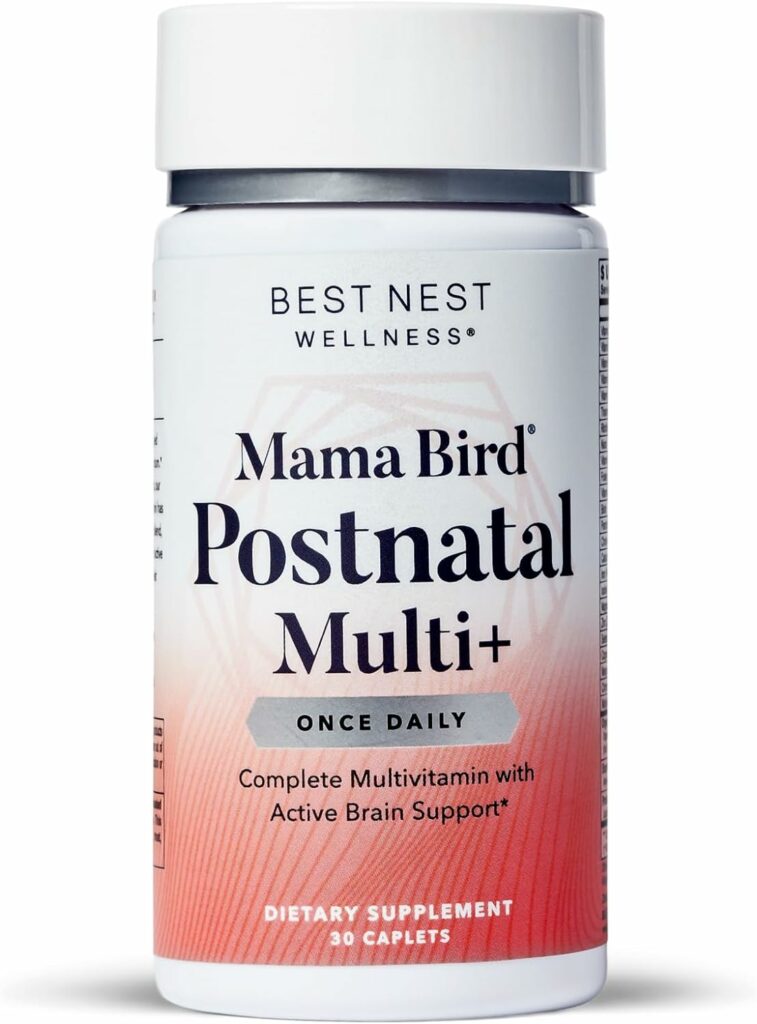Welcoming a new baby into the world is an extraordinary experience, but it also brings significant changes, not just in lifestyle but also in the health and well-being of a new mother.
Postpartum, the period following childbirth, is a critical time for a woman’s physical and emotional recovery.
In this post, we’ll explore what postpartum entails and offer five natural ways to manage postpartum health.
What Is Postpartum?
The postpartum period begins immediately after childbirth as the mother’s body, including her hormonal levels and uterus size, returns to a non-pregnant state.
Although the postpartum period is typically considered to last six weeks, recovery can vary and may take longer.
This phase is often accompanied by a mix of emotions – joy, exhaustion, excitement, and sometimes anxiety or sadness.
5 Natural Ways To Ease The Postpartum Period
1. Use A Postnatal Vitamin.
Postnatal vitamins play a crucial role in the postpartum period, offering several key benefits for new mothers:
Firstly, they help replenish essential nutrients that may have been depleted during pregnancy and childbirth, such as iron, which is often lost during delivery.
Additionally, postnatal vitamins can support breastfeeding by ensuring that the mother has a sufficient supply of vital nutrients like Vitamin D and B vitamins, which are crucial for the baby’s development.
This is particularly important as the body adjusts hormonally and physically after childbirth.
My favorite postnatal vitamin is Mama Bird Postnatal Multivitamin.
Formulated by a brain doctor, this multivitamin is not only for physical health for you and your baby: it contains ingredients for active brain support which are essential for your baby.
All you need to do is take one caplet a day and you get essential nutrients that you may need during this postpartum period.
As always, please consult your doctor or other qualified healthcare provider with any questions you may have regarding vitamins or supplements.
2. Prioritize Rest & Sleep.
Sleep is a precious commodity, especially with a newborn in the house, yet it’s a critical component of postpartum recovery.
Lack of sleep not only impacts your physical health but also your emotional well-being, making it harder to cope with the demands of new motherhood.
To help mitigate this, there are several strategies you can employ.
First, embrace the age-old wisdom of sleeping when your baby sleeps.
This might be the only time you get to rest, so it’s important to take advantage of these moments.
Don’t be shy about asking family or friends to watch your baby while you take a nap.
Additionally, creating a restful environment in your sleeping area can significantly improve the quality of your sleep.
3. Nutrition Is Key
Nutrition is another key aspect of postpartum recovery.
Your body has gone through significant changes and needs the right nutrients to heal and regain strength.
Eating balanced meals rich in whole grains, proteins, fruits, and vegetables is essential.
Staying hydrated is especially important if you are breastfeeding, as it impacts both your health and your milk supply.
Also, consider speaking to your healthcare provider about supplements, particularly if you experienced significant blood loss during delivery, as you may need additional support like iron supplements.
4. Gentle Exercise
Gentle exercise can also be beneficial during the postpartum period.
It’s important not to rush into a strenuous fitness regime too soon.
Starting with low-impact activities like walking can be soothing and beneficial for both you and your baby.
Engaging in postpartum yoga or Pilates can help strengthen your core and improve your mental health.
Always listen to your body and consult with your doctor before starting any exercise program to ensure it’s safe for your current state of recovery.
5. Mindfulness & Mental Health
Mental health is just as important as physical health during the postpartum period.
Many new mothers experience postpartum depression (PPD), so it’s crucial to pay attention to your mental and emotional well-being.
Practicing mindfulness and meditation can be effective in managing stress and anxiety.
Staying connected with friends, family, or joining a support group for new mothers can provide emotional support and a sense of community.
If you’re experiencing symptoms of PPD, don’t hesitate to seek professional help.
BONUS: Natural Remedies & Self-care
Lastly, incorporating natural remedies and self-care routines can significantly aid in your postpartum recovery.
Warm baths can be incredibly soothing for sore muscles and provide a much-needed relaxation.
Herbal teas can promote relaxation and aid in better sleep, while gentle massage can alleviate body aches and improve circulation.
These self-care practices not only support physical recovery but also provide a mental and emotional boost, helping you navigate the postpartum period with greater ease and comfort.
Care For You
The postpartum period is a time of immense change and adjustment.
While caring for your newborn is a top priority, it’s equally important to take care of yourself.
By incorporating these natural methods into your postpartum care routine, you can aid your recovery and ensure that you are at your best for yourself and your new baby.
Remember, every mother’s experience is unique, and it’s important to consult with healthcare professionals regarding any health concerns during the postpartum period.
Your health and well-being are paramount, not just for you but for your baby as well.
